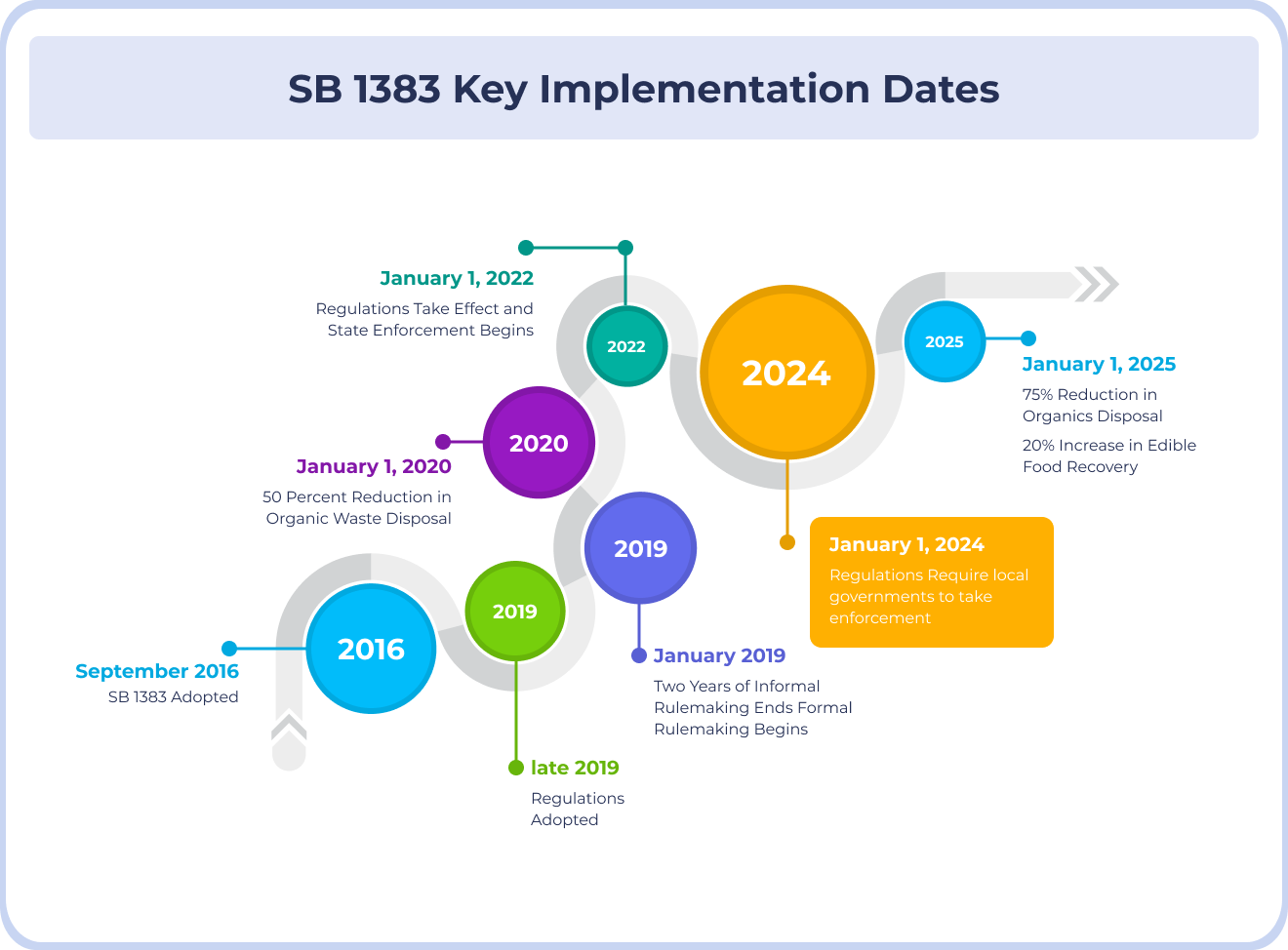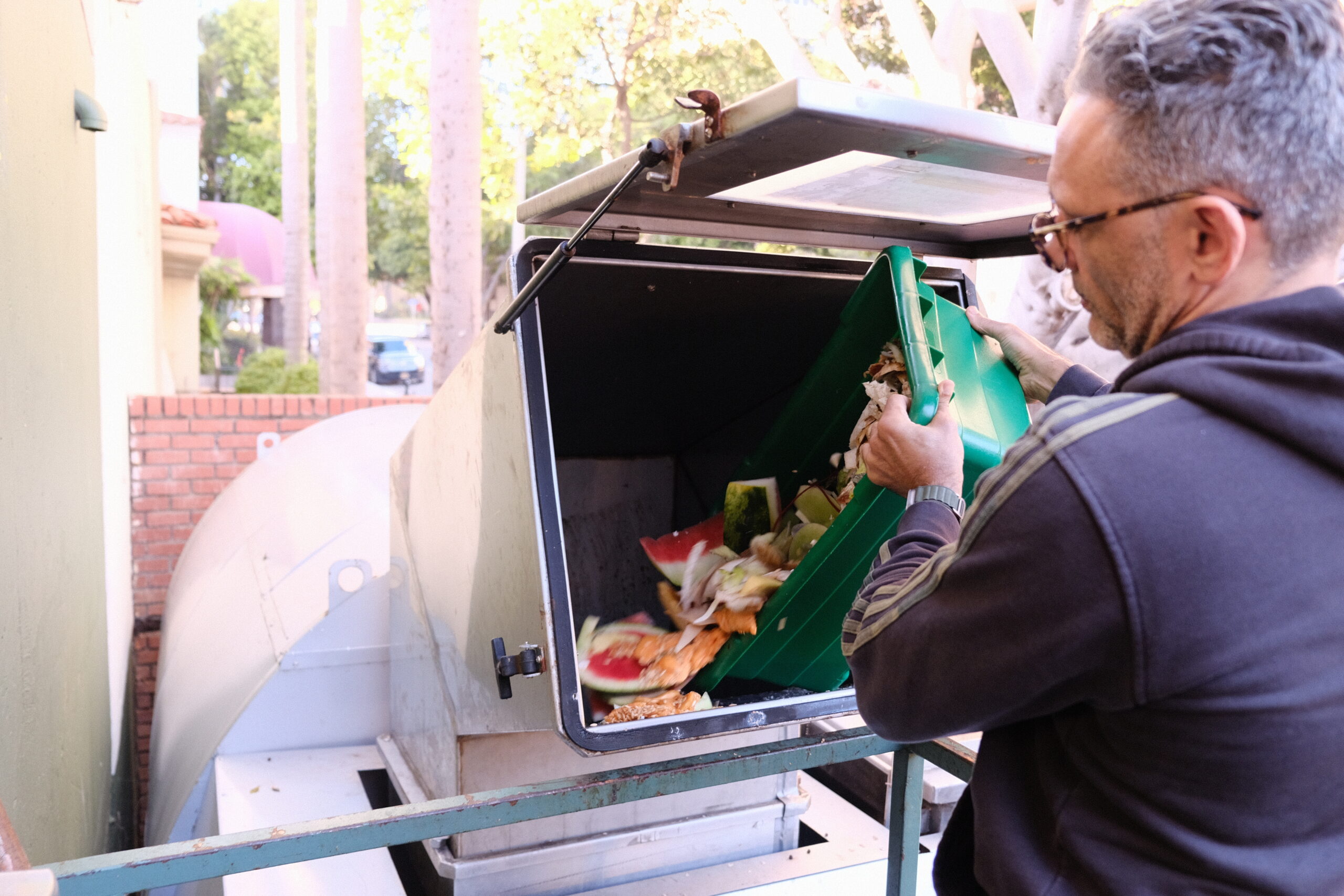SB 1383: A Guide for Business Owners SB 1383: A Guide for Business Owners
Dyrt News
Industry News
Regulations

Navigating SB 1383
California’s Short-Lived Climate Pollutant Reduction Law, known as SB 1383, was enacted in 2016 with a big goal: reduce organic waste and associated greenhouse gas emissions by 75% by 2025. The law is more stringent than the previous AB 939. It requires businesses to implement organic waste management practices, including separating, measuring and properly disposing of all food waste.
Municipalities are required to enforce the law starting this year. If you’re running a business in California, you will want to meet requirements as soon as possible to avoid fines and penalties. Here’s a quick guide on how to keep up:
Your Compliance Checklist
Organic Waste Collection: Arrange for proper organic waste collection. Under the new law, businesses must secure appropriate bins for separating organic waste and subscribe to services that handle organic waste collection or composting. Businesses can also opt to self-haul organic waste but are responsible for all documentation.
Education and Training: Prepare for potential audits by having strategies to address waste contamination issues. In fact, SB 1383 requires that businesses implement training programs and provide informational materials for employees and customers to help minimize contamination in organic waste bins.
Data Tracking and Reporting: Maintain accurate record-keeping of organic waste generation and diversion activities. Businesses must track and report the weight or volume of organic and non-organic waste collected..
What’s Happening Now?
Enforcement by CalRecycle began on January 1, 2024, including inspections of waste haulers, and audits of municipal programs. Businesses must recognize that they are responsible for their waste management practices, even if they hire third-party services. If an audit of a waste hauler reveals non-compliance, such as improper mixing of waste streams or diversion of organic waste to landfills, the business will also be at risk of penalties.
From July 1, 2024, CalRecycle will impose fines on jurisdictions not complying with SB 1383. These fines are likely to be passed down to non-compliant businesses and waste haulers. In fact, the City of Los Angeles said it will soon start issuing fines to businesses.
How to Stay in the Clear
CalRecycle provides various resources to assist businesses, including compliance checklists and educational tools. Businesses are required to report the weight or volume of both organic and inorganic waste to their local jurisdiction or provide documentation for alternative composting programs. Additionally, they must document their educational efforts, such as training sessions, email communications, or informational posters.
Simple Organics Collection and Compliance
At Dyrt, we understand the complexities of SB 1383 and are dedicated to making your life easier. We control the full organic waste lifecycle from collection to processing and ensure that organic waste is not only diverted from landfills but also documented, and appropriately processed at our local facilities. Our automated measurement technology delivers real-time data and compliance reporting, making adherence to regulatory requirements seamless. We also provide training for staff and residents and informational posters and bins that fulfill SB 1383 education and outreach requirements.
By getting on board with SB 1383, you’re helping make California a better place. With Dyrt’s expertise and support, it’s easy.

